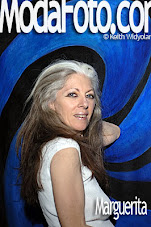
ENTREVISTA: ENTREVISTA UMBERTO ECO
Umberto Eco es un hombre casi feliz. Un profesor que disfruta de sus alumnos y que ahora, jubilado a los 76 años de sus múltiples ocupaciones académicas, sigue trabajando “aún más que antes”, impartiendo clases doctorales, escribiendo libros (“¡ni media palabra sobre el que hago ahora!”, exclama, poniéndose el dedo sobre los labios), asistiendo a congresos (cuando le vimos, estaba a punto, de ir a uno en el que tenía que hablar de las matemáticas locas, y ahora vendrá a Granada, a principios de abril, al Mapfre Hay Festival), leyendo tebeos (“ahora son demasiado intelectuales”) y riendo como un chiquillo. Serio cuando habla de Italia, cuyas elecciones se le vienen encima con la amenaza cierta de que las gane Berlusconi, y optimista cuando habla de España. “¡Ustedes tienen la suerte de Zapatero!”. Cuando Jordi Socías le pidió que posara con un borsalino, el tipo de sombrero que ha hecho mundialmente conocido a su pueblo, Alessandria, se divirtió como si volviera al patio de su familia, en ese lugar que cada vez está más cerca de su memoria, como si la edad le hiciera recuperar los sabores perdidos de la adolescencia.
A Conversation on Information
Patrick CoppockFebruary 1995
Umberto Eco is professor of semiotics, philosophy of literature at the University of Bologna in Italy. In addition to his prolific academic publication activity he is a frequent contributor to the popular press. Eco is also a highly successful novelist and essayist on the international arena. Some of his most important academic works are Semiotics and the Philosophy of Language, The Role of the Reader, A Theory of Semiotics and Art and Beauty in the Middle Ages. Amongst his collections of essays are Travels in Hyperreality, Misreadings and the recently published The Limits of Interpretation. He has also written two childrens' books.
His two most well-known novels are The Name of the Rose and Foucault's Pendulum. The Name of the Rose alone has sold 26 million copies and has been translated to a huge number of foreign languages. Recently he has published a collection of six lectures in literature theory which he gave in 1993 at Harvard university: Six Walks in the Forest of Adventure. His most recent novel, published in 1994, L'Isola del giorno prima (The Island from the day before) is at present being translated into several languages. The English version is to be published this Spring and the Norwegian version will appear later this year.
Eco is also a renowned historian and media critic, and he is lively engaged in the debate on how modern media and computer technology are affecting literary science, culture and society. In 1994 he organized a large international seminar at The International Center for Semiotic and Cognitive Science in San Marino entitled The Future of the Book. A publication with the papers presented at this seminar is expected appear towards the end of this year. International experts on hypertekst and hypermedia such as Jay Bolter, George Landow and Michael Joyce will among the contributors to this publication. In collaboration with the Bologna-based multimedia group Horizons Unlimited, and the Milano publishing company Opera Multimedia he has recently launched a hypermedia history of philosophy on CD-ROM: Encyclomedia.
In this exclusive interview for Multimedia World made in Bologna, mdia iconi Umberto Eco reveals some of his more spontaneous, wash-and-wear thoughts, and some deeper reflections on the Internet, information overload and filtering, hypertext , hypermedia and virtual reality. In the course of the conversation it emerges that Eco is enthusiastic, but at the same time sober and critical to the functionality and value of new technology and media, both in relation to his own field of academic research and his other publishing activities.
http://www.elpais.com/articulo/portada/sienta/totalmente/feliz/cretino/elppgl/20080330elpepspor_8/Tes




No comments:
Post a Comment